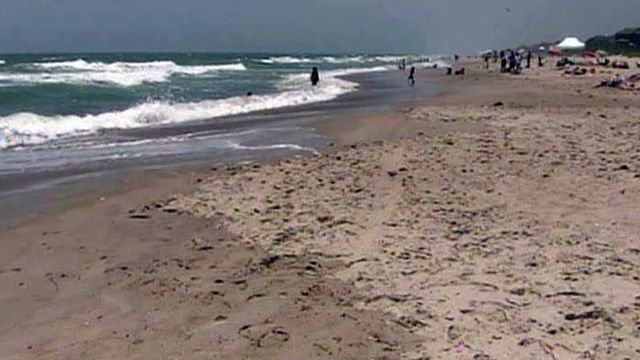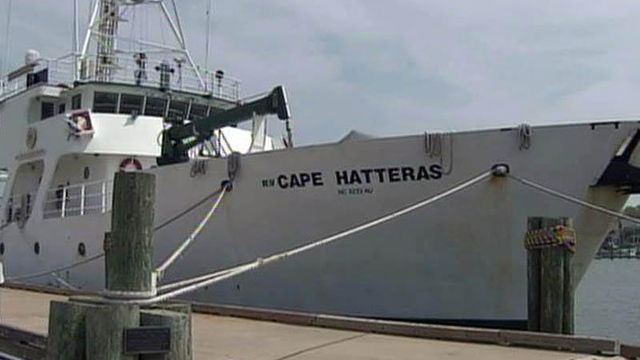N.C. coast not worried about Gulf oil ... yet
Boaters, fishermen and tourists along the North Carolina coast said Friday that they remain hopeful that oil from the ongoing spill in the Gulf of Mexico doesn't stain the state's waters or beaches.
Posted — UpdatedComputer models run by the National Center for Atmospheric Research have shown that oil could enter the Gulf’s loop current, go around the tip of Florida and follow the Gulf Stream current as far north as Cape Hatteras. According to researchers, oil could threaten North Carolina beaches by early July, but they cautioned the models were not a forecast.
"Sure, it's worrying everyone, but I can't think about it. I can't control it," said Lee Manning, who has run charter fishing boats out of Swansboro for 45 years. "It's like worrying about a major hurricane coming. It might, but it might not. I don't worry about either."
Gary Matthews, a shrimper in Beaufort, said he's enjoyed a jumbo season and his worst fear is that the oil comes in off the Gulf Stream to settle in the coastal salt marshes.
"If it gets into our estuaries, it'll kill the shrimp and the crabs and the oysters," Matthews said. "I hope for the best and pray it doesn't get here."
On the beach, sunbathers were more concerned about sunscreen than oil sheen.
"I'm just enjoying the beach. I try not to worry about stuff too much," Justin Barnes said.
"I think Mother Nature will take care of it before it gets this far up," Hazel Gregory said. "That's probably wishful thinking, but I think so."
Duke crew aids in spill research
Meanwhile, a crew employed by Duke University will leave North Carolina on Saturday to take scientists into the middle of the oil spill in the Gulf to study it.
The Duke Marine Laboratory and the Duke-University of North Carolina Oceanographic Consortium operate the Research Vessel Cape Hatteras, a 135-foot-long owned by the National Science Foundation.
The crew plans to stop in Gulfport, Miss., to pick up researchers from various universities and spend several days on the Gulf studying the methane in the water from the spill and compare the findings to earlier studies.
"Until you understand what you're dealing with, it's hard to do a cohesive clean-up," said Dale Murphy, who has captained the RV Cape Hatteras for six years.
Murphy has taken the ship to the Gulf before, but he said he's unsure what to expect this time.
"My understanding is we're going to be right up to, or as close to, the wellhead as the Coast Guard will let us get," he said. "I would expect to see some shine – some sheen on the water – probably some odors (and) vapors in the air."
Special suits and boots have been brought aboard, and the entire crew had to go through hazardous materials training.
"It's going to be messy," said Joe Ustach, executive officer for the RV Cape Hatteras, adding that some of the scientific gear will have to be disposed of once they get contaminated by the oil.
"We're going to add to the knowledge of the world, to help people solve some of the problems of the world," Ustach said.
• Credits
Copyright 2024 by Capitol Broadcasting Company. All rights reserved. This material may not be published, broadcast, rewritten or redistributed.






